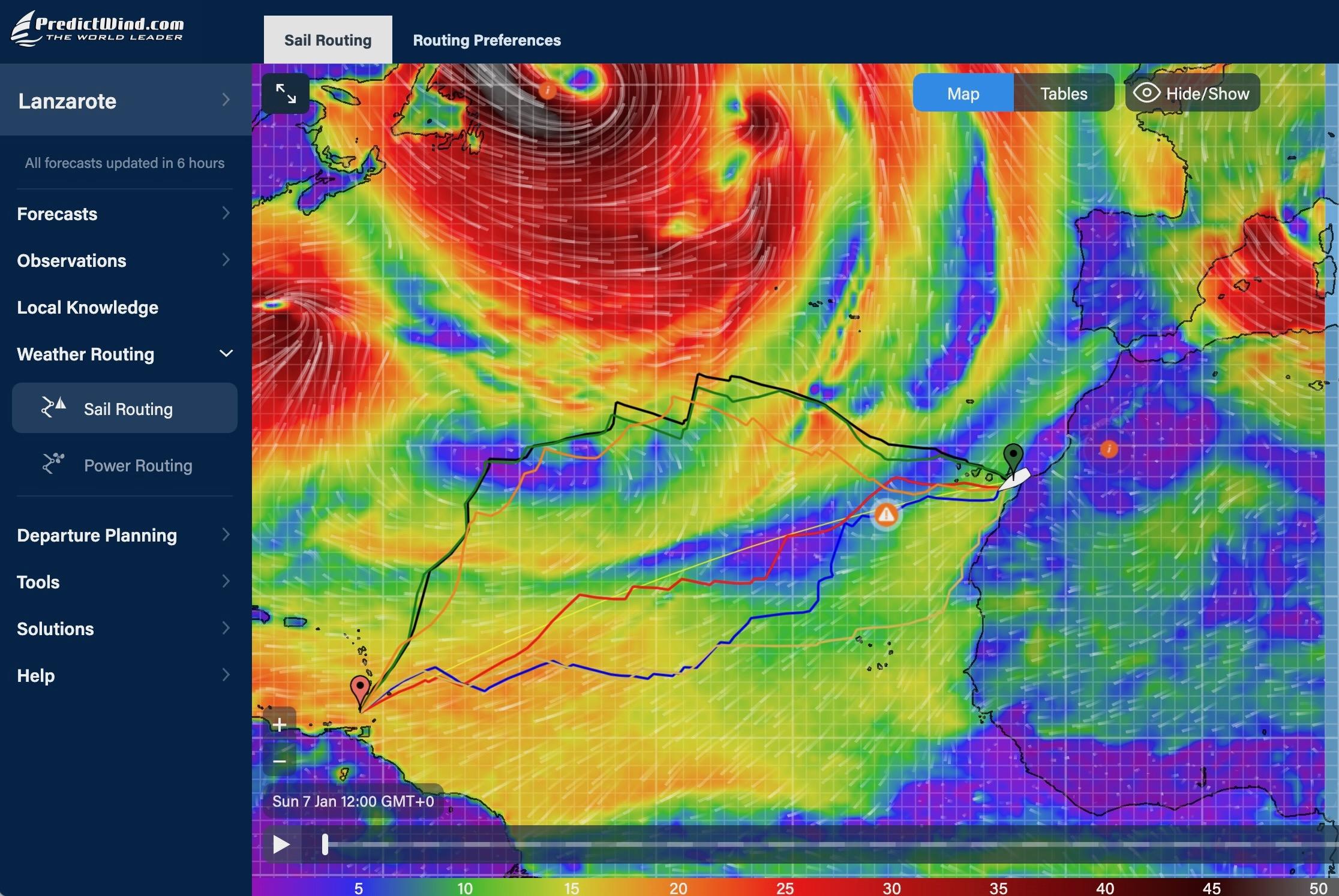

1200 UTC 05 January - The Royal Ocean Racing Club, after consulting with various meteorological experts, has amended the course for the 2024 RORC Transatlantic Race. The requirement to leave the Canary Islands to Port has been removed.
Race Director Steve Cole commented: “Now we are only 48 hrs away from the start of the race, it has become apparent that the established course will send the very diverse fleet into two unusually deep depressions with the possibilities of winds exceeding 40 knots and a potential wave height of eight metres. This decision allows boats to still take that route if they wish but opens an option for boats to head immediately South after the first mark if they choose to do so.”
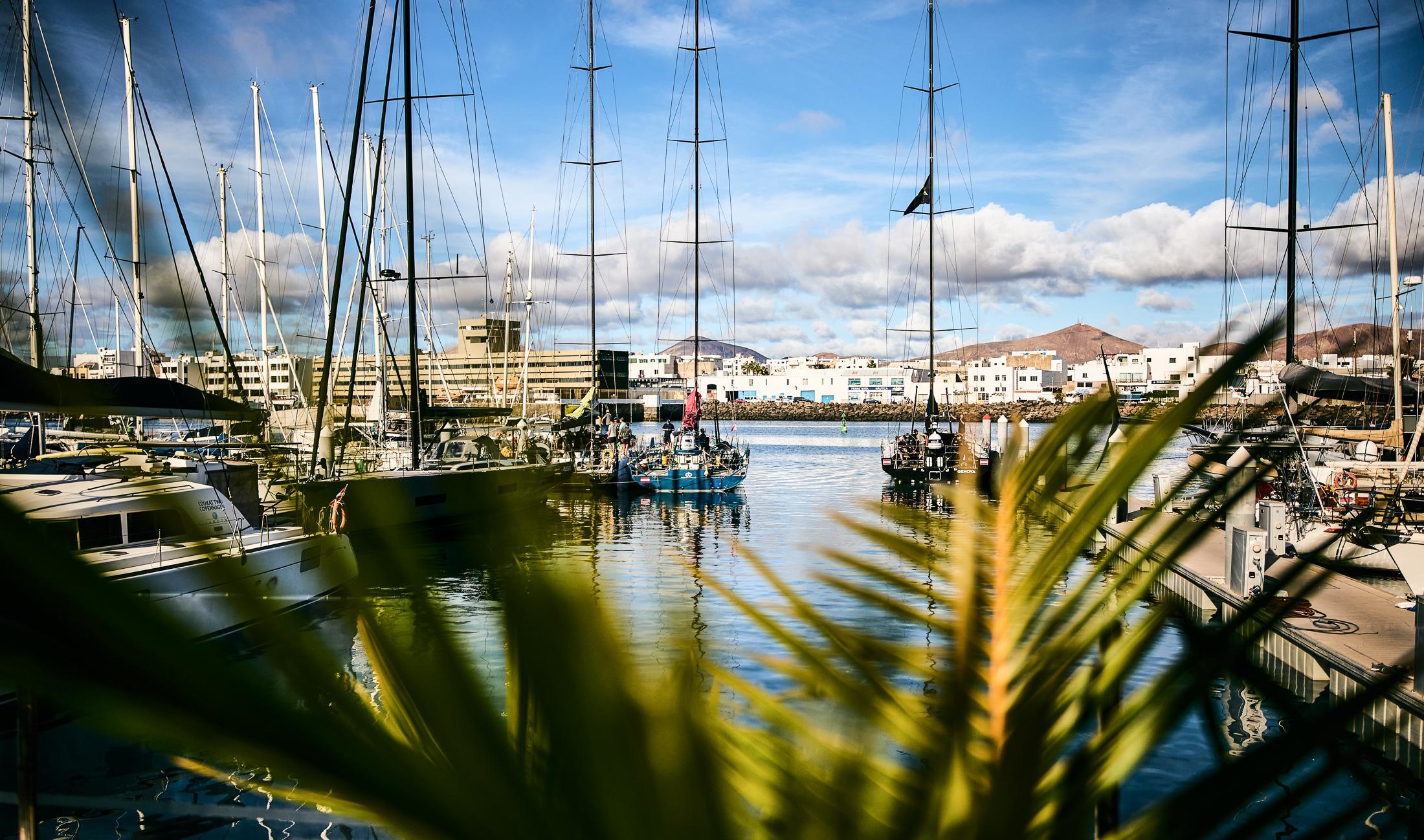 Crews are making final preparations for the race at Marina Lanzarote © Robert Hajduk
Crews are making final preparations for the race at Marina Lanzarote © Robert Hajduk
Lisa McDonald from PredictWind foretells a calm before the storm for the race start at 1200 UTC 07 January: “Looking ahead to Sunday’s sunny start from Lanzarote; most of the models are in agreement that the wind will generally be out of the NNE quadrant and anywhere from 6 - 10 knots in the morning, with acceleration to 12 -14 knots in the afternoon and going into the early evening. There will be a significant wind-shadow effect to the south of the island with very light and variable wind at times.
“The faster boats may be able to get away before the weather GRIBs show that wind will decrease considerably on Monday, and large areas of light and variable winds will start to appear to the west due to the unstable air mass and series of low pressure systems to the north. The fleet can look forward to navigating a large and variable area of light winds going into the start of the week before the next weather front system arrives.”
Weather Dock Talk
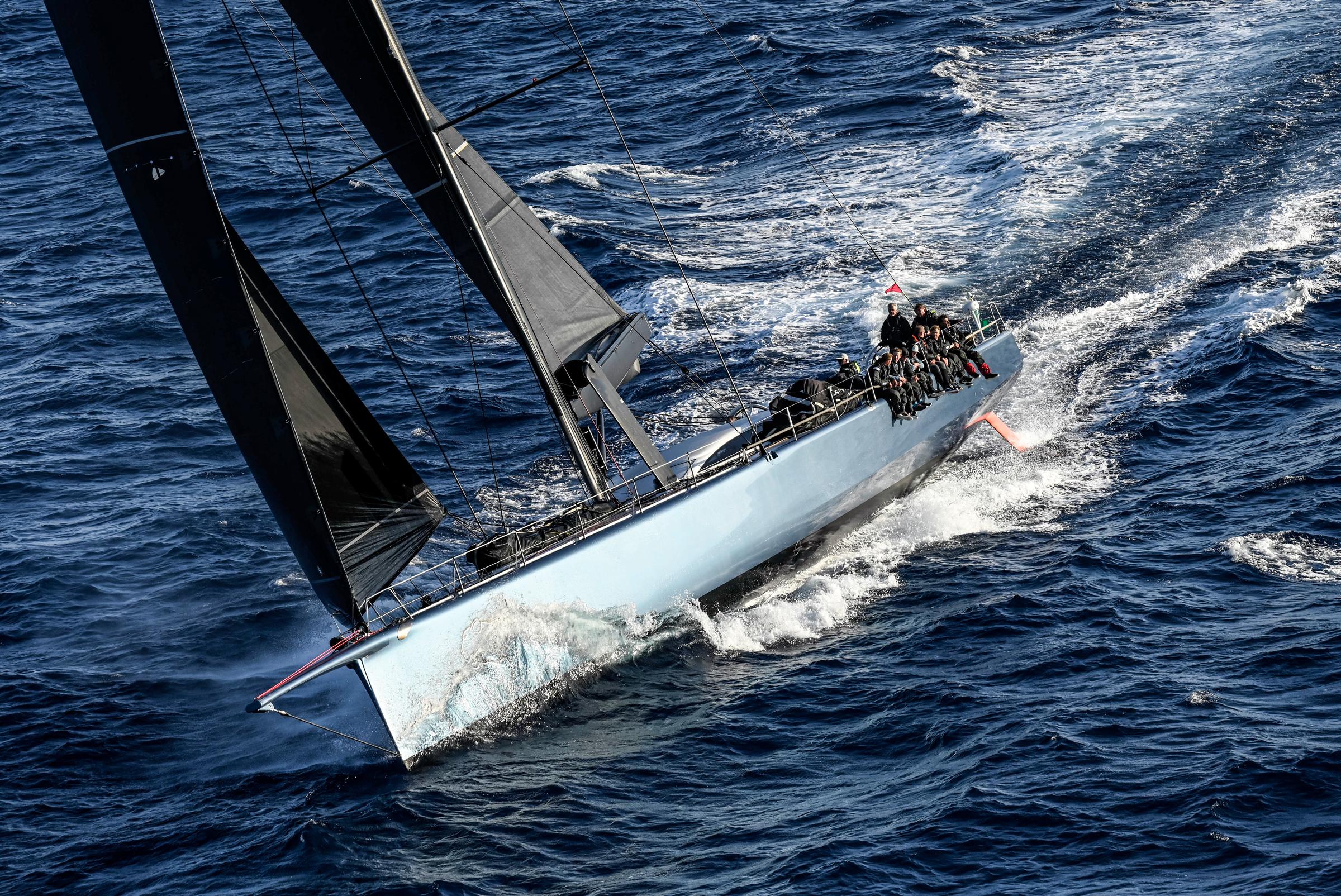 Farr 100 canting keel Leopard 3 © Kurt Arrigo/ROLEX
Farr 100 canting keel Leopard 3 © Kurt Arrigo/ROLEX
The Farr 100 canting keel maxi Leopard 3 (MON), skippered by Chris Sherlock is the hot favourite for monohull line honours and has the potential to set a new race record for the RORC Transatlantic Race. Leopard 3’s navigator, Will Best commented that sea state for a northerly route will be the deciding factor for Leopard 3’s trajectory across the 3,000 mile course. Predictions of a wave height in excess of 8 metres on the northerly route will massively affect the speed of Leopard 3, but it is not just the wave height, but the wave direction that will decide Leopard’s strategy for the race. The low pressure systems from the north are expected to introduce a cross current that may create a messy sea state for the 2024 race. The Monohull Race Record for the RORC Transatlantic Race is 7 days 22 hrs 01 mins 04 secs, achieved by Comanche in 2022. Mitch Booth was the skipper for the record run and Mitch is part of highly experienced crew on Leopard 3 for the 2024 race.
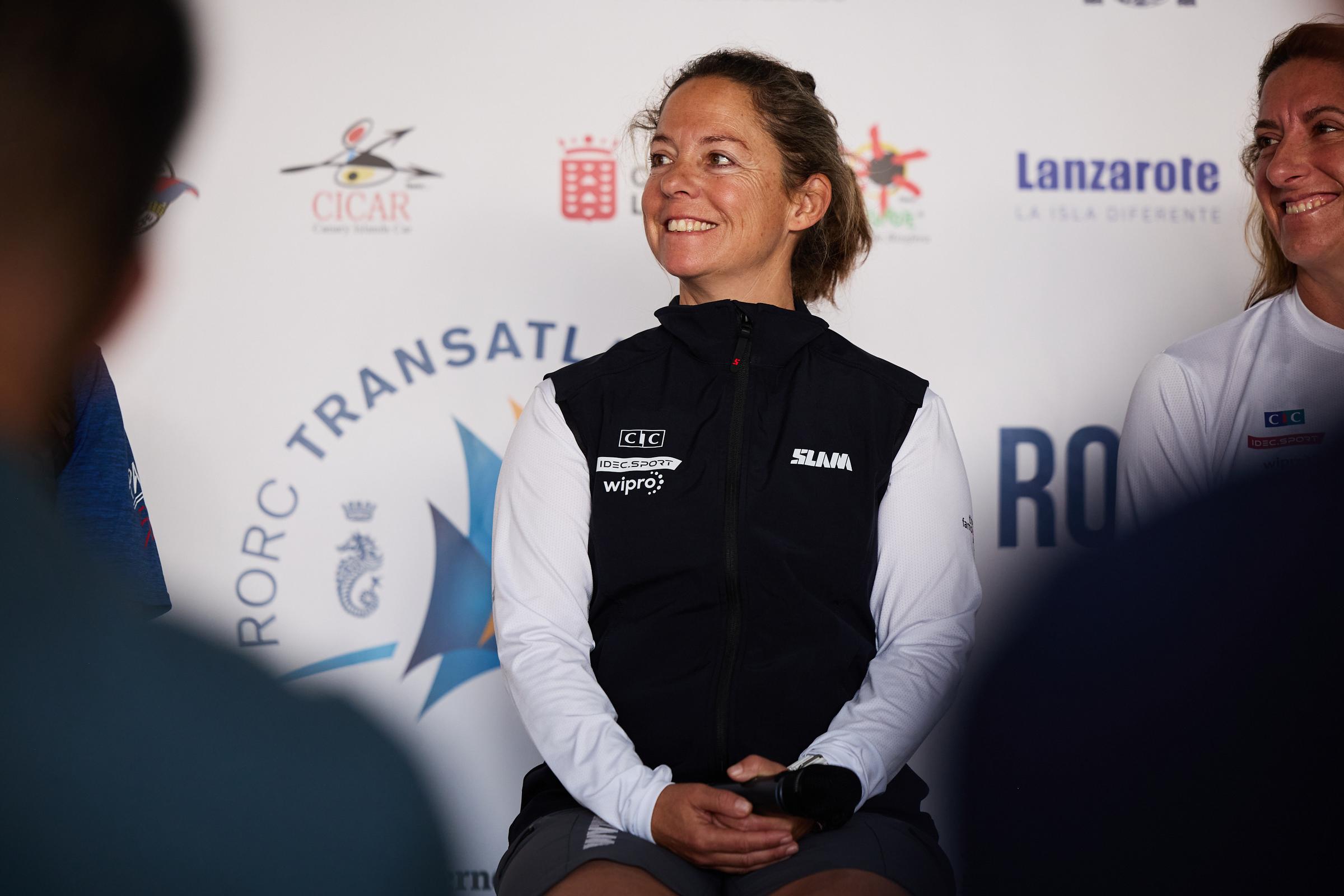 Alexia Barrier, skipper of The Famous Project's MOD70 Limosa © James Mitchell
Alexia Barrier, skipper of The Famous Project's MOD70 Limosa © James Mitchell
Three MOD70s in the race are favourites for Multihull Line Honours. Skipper of MOD70 Limosa (FRA), Alexia Barrier, believes that that the disruption to the tradewinds will increase their chances of success for the race. Limosa is in original MOD70 configuration, but their immediate competition, Jason Carroll’s Argo (USA) and Erik Maris’ Zoulou (FRA) both have lifting foils midships and on their rudders. Argo and Zoulou are potentially much faster reaching in normal tradewinds.
“It's a very complex weather system; we have a lot of things still to be decided,” commented Limosa’s Alexia Barrier. “There will be a lot of transition for us, but as we are not the ‘king of the class’, I think we have more chance to be at the front because there will be many big choices to be made. The northerly route is looking very dangerous for the MOD70s with waves predicted over 8 meters. The three MOD 70 skippers are having a discussion and we hope to have an agreement before the race start, that we will all go south of a GPS waypoint.”
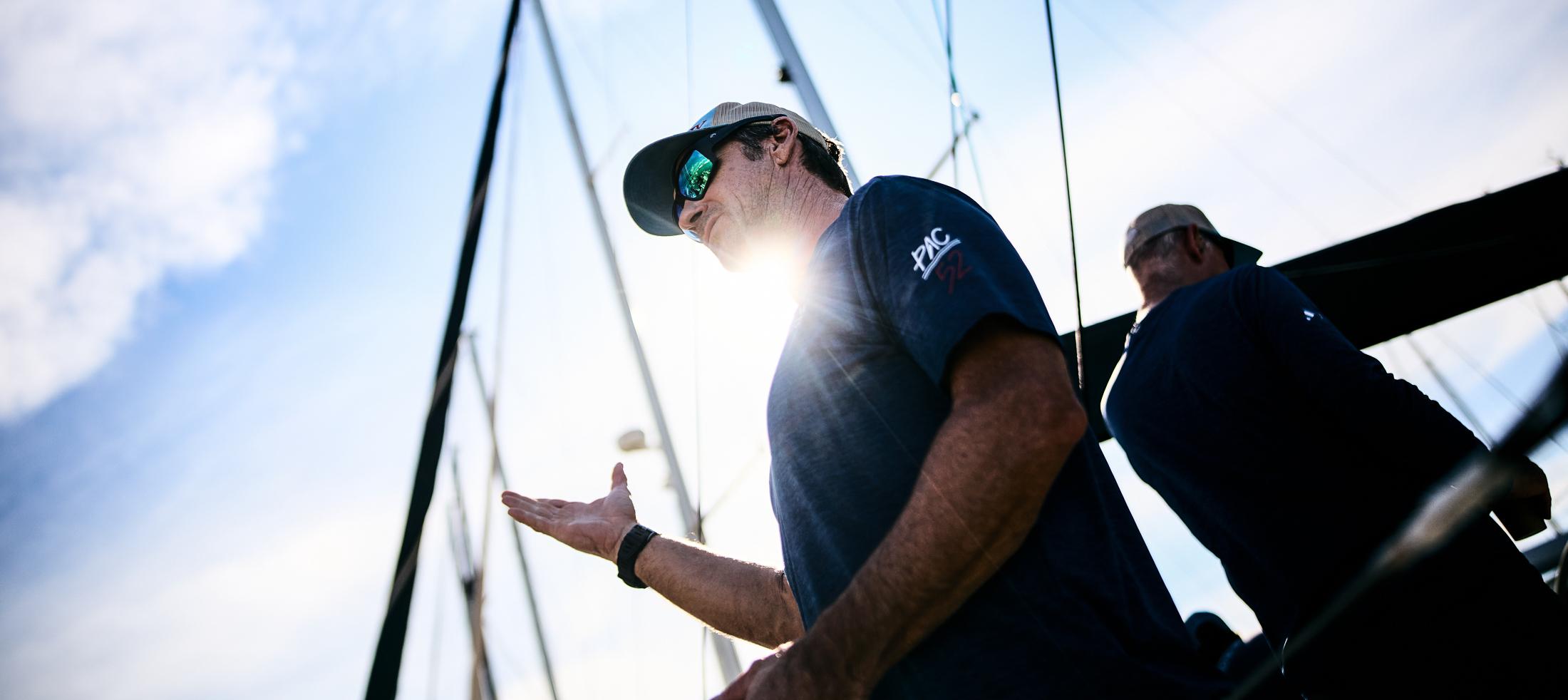 Warrior Won tactician Richard Clarke © Robert Hajduk
Warrior Won tactician Richard Clarke © Robert Hajduk
Christopher Sheehan’s PAC52 Warrior Won (USA) has a stellar crew, including Canadian tactician Richard Clarke. Warrior Won must be considered as one of the favourites for the overall win under IRC. However, the complex weather is bound to create a race with numerous strategic conditions.
“The weather is looking brutal; a stormy North Atlantic,” commented Richard Clarke. “The greatest challenge is to keep the foot on the gas in a race of this length; to continue to focus and to battle the elements. Looking at the forecast, it is a massive accomplishment to race across an ocean and the Warrior Won team is prepared to pull it off, that is the number one task.”
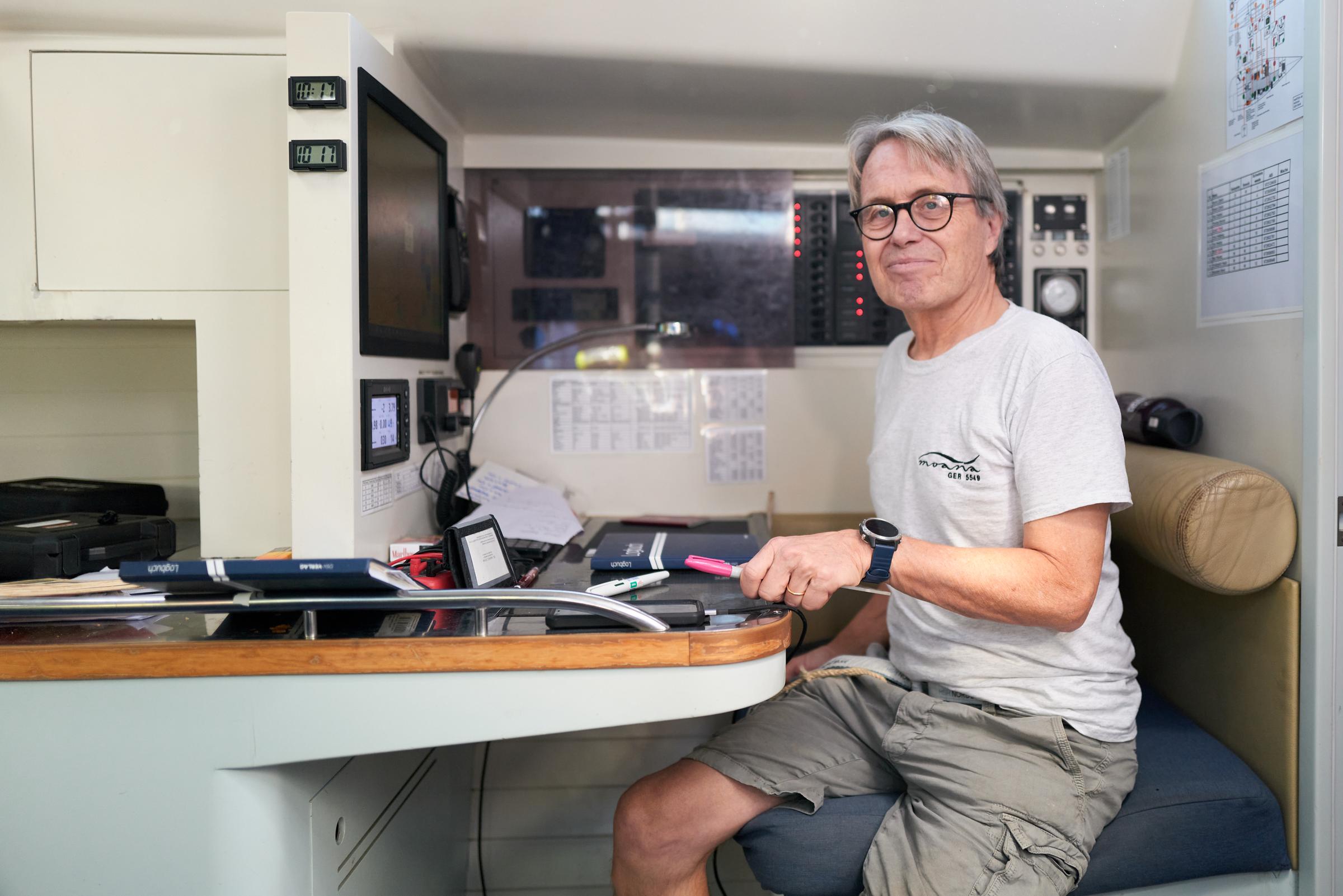 Hanno Ziehm’s Marten 49 Moana (GER) © James Mitchell
Hanno Ziehm’s Marten 49 Moana (GER) © James Mitchell
Hanno Ziehm’s Marten 49 Moana (GER) will be taking part in its debut RORC Transatlantic Race. Hull #3 of the Carbon Nomex design built in New Zealand, Moana will have a German crew skippered by Lorenz Pinck. “We are really focused on preparing Moana in the days before the start, making sure the boat and the crew are ready for the race. We are monitoring weather updates which will be used to decide our route, especially if we will go north or south.” commented Hanno Ziehm. “This will be our first ocean race and after, Moana will race in the Nelson’s Cup Series and the RORC Caribbean 600, but our adventure starts with the RORC Transatlantic Race.”
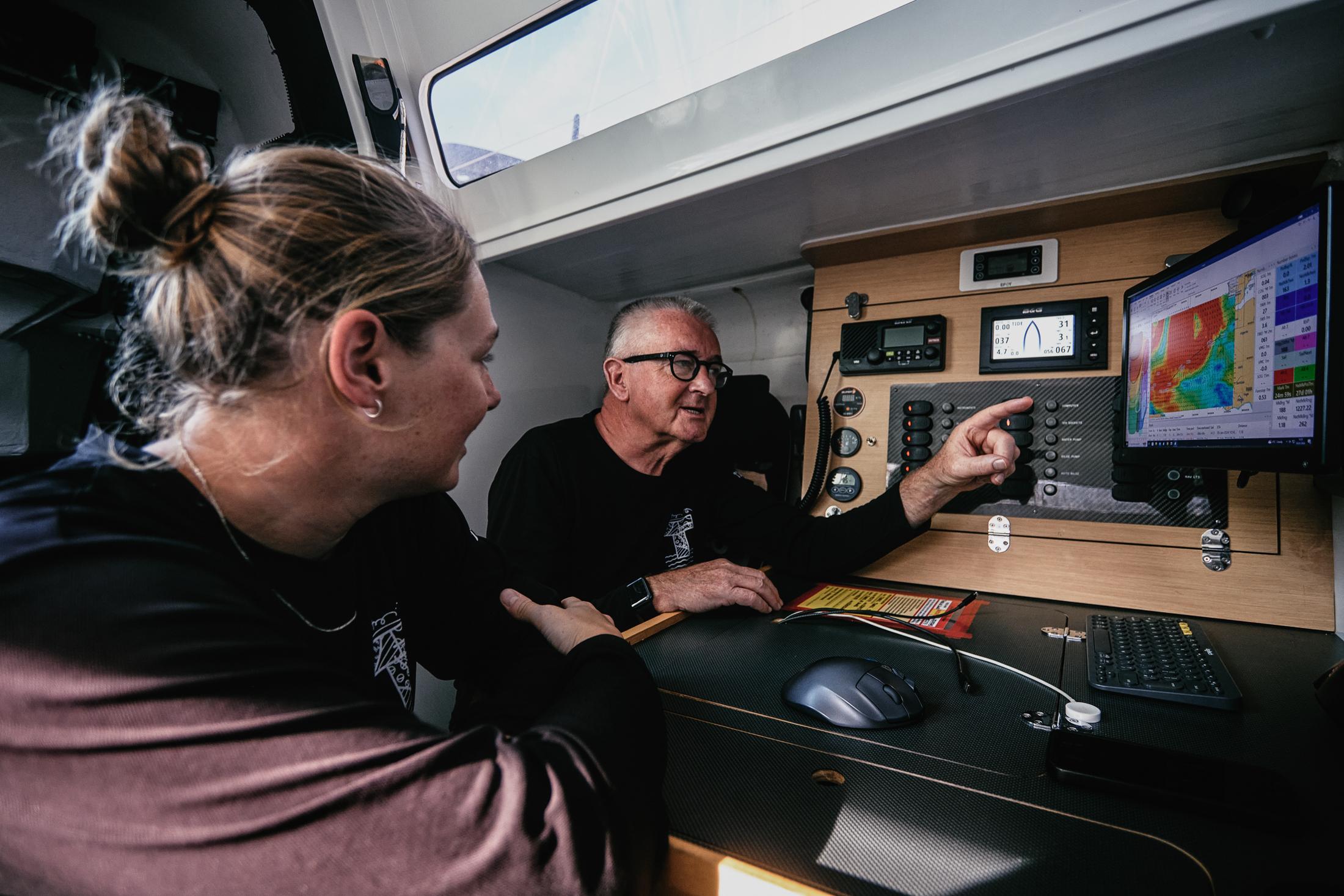 Gavin Howe and Maggie Adamson on Sun Fast 3600 Tigris © Robert Hajduk
Gavin Howe and Maggie Adamson on Sun Fast 3600 Tigris © Robert Hajduk
Gavin Howes’ Sun Fast 3600 Tigris (GBR), racing Two-Handed with Maggie Adamson is exceptionally well-maintained and has successfully finished the last two editions of the Sevenstar Round Britain and Ireland Race. Gavin sees the weather forecast as quite challenging, but the doublehanded team are determined to finish the race: “Tigris is the smallest and lowest IRC rated boat in fleet and it's very important that we don't sail too many extra miles seeking different weather scenarios,” commented Gavin Howe. “Obviously the weather is moving all the time and we're reviewing every update. At the moment we're looking at initially a route close to the rhumb line and then managing the low pressure systems as they come through. We don't want to be going upwind in 35 knots, because to succeed in the race we need to cross that finish line. Our route will be a compromise between the fastest theoretical route, while avoiding the worst of the weather. Also with a little bit of personal comfort in mind, as well speed.”
The RORC Transatlantic Race is part of the RORC Season’s Points Championship, the world’s largest offshore racing series.